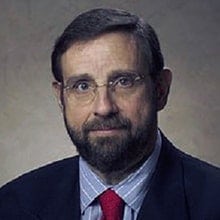By Jim Toes, President & CEO, Security Traders Association
(Note: This article was published by the STA on February 17, the day before the GameStop hearing on Capitol Hill.)
Over the past three weeks, STA has received significant input from a broad range of market participants, with respect to a letter we submitted to the House Financial Services Committee, just ahead of its virtual hearing on the market volatility we experienced in late January and early February. The title of the hearing is “Game Stopped? Who Wins and Loses When Short Sellers, Social Media and Retail Investors Collide,” and the CEOs of Robinhood, Citadel, Melvin Capital Management and Reddit will be among the witnesses.
Some of the opinions we expressed in our letter to Congress are set forth below, and we want to take this moment to thank everyone who took time to speak with us. In particular, we want to thank former SEC Chairman Harvey Pitt and former NYSE Chairman and CEO Richard “Dick” Grasso. Both provided invaluable historical perspective; as well as guiding principles and insights. Their contributions enabled us to appreciate the value that regulators, legislators and free markets bring to solutions that improve the integrity of our markets and enhance the protections to the investors we serve.

Like most hearings, this will be an opportunity for Members of Congress to ask questions on behalf of their constituents. It will also be an opportunity for the witnesses, who were decision makers at the center of the volatility, to provide answers and statements for the record. Investors and all those involved in the financial services industry should come away with a better, albeit incomplete, understanding of what did and did not happen amid the market frenzy and begin to develop a picture of what should be fixed or improved.
As we’ve written in the past, our markets are in a constant state of evolution and there are times when certain events serve as clarifying moments that drive discussion of inefficiencies. In the aftermath of such events, solutions born from free markets, legislative actions or regulation are implemented to correct these inefficiencies, allowing the evolutionary process to advance. This process has repeated consistently since the signing of the Buttonwood Agreement in 1792.

Where GameStop falls on the long list of events that have played a role in our market structure is still too early to determine. However, it is safe to say that there have been few events that have attracted as much attention and elicited as many strong but divergent opinions on what is right and wrong about our markets today. When evaluating an event and trying to determine the best way forward, diversity of opinions is a good thing. The challenge, however, is channeling and organizing differences of opinion in a manner that ensures they yield their full potential benefit. We hope our letter is a constructive contribution to conversations that will ultimately determine the short- and long-term actions.
STA Letter: Developments in the Markets Benefiting Investors: The democratization of the markets, which has been an overwhelmingly positive, but not a new development, has been at the core of many conversations recently.
Grasso – An early catalyst in the democratization of our markets occurred in 1975, when the SEC ordered the end of fixed commission rates for all securities transactions. When the fixed commission schedule was eliminated, that gave birth to discount brokerage firms like Charles Schwab, Quick & Reilly and all of the firms that followed them. When you eliminate fixed commission rates, you incentivize people to invest, and that is great for the country.
STA Letter: Decouple short-term responses from long-term: STA supports the efforts of regulators in conducting a rigorous investigation into potential violations of rules and laws. Simultaneously, the regulatory agencies also need to gather data.
Grasso – The common ingredient in what makes the industry great and makes the whole process work is investor confidence and that is being challenged right now. Regulators need a two-track focus, guided by improving market integrity and providing investor protection. Examiners need to go in and do a post mortem of what’s happened thus far, and apply broker dealer disciplines to newer entrants that are designed like e-commerce platforms.
Pitt – People have to take a step back and focus on what the actual problems are and respond thoughtfully, particularly when there is no need to act precipitously. Gather data, set up short- and long- term goals, which is what we did after 9/11.
STA Letter: Decouple Entity Specific Issues from Broad Market Structure Issues: STA believes it is imperative to decouple events and issues which may be specific to one entity or market participant from those which may have industry-wide implications or could represent a market-wide inefficiency.
Pitt – Any response needs to differentiate systemic issues from entity-specific issues. Entity-specific issues can be dealt with under the existing authority and investigative powers that the Commission has. In this sense, that’s an aspect of the problem that shouldn’t taint, influence or color the approach of how you deal with the entire marketplace, and make the system stronger.
STA Letter: Facilitating individual investing: Brokerage firms want to empower investors and make investing easy.
Grasso – A best practice standard on the part of broker dealers could be to warn their customers transactionally when they believe, having the knowledge of their customers’ risk tolerance and profile, that an investment or trade carries extreme risk. If I were running a broker dealer, I would have been giving my customers a Surgeon General’s warning, “This investment that you’re about to make may be hazardous to your wealth.”
Pitt – As we talk about facilitating the effective use of self-investing and empowering investors, we need to make clear to investors that, at different levels of trading sophistication, there are different types of issues they will confront and it is in their interest to self-assess what their skill levels are. Then, they can obtain access to self-directed trading that is tailored to their skill level. This won’t prevent people who want to engage in sophisticated trading but aren’t equipped for it from doing so, but what you can do is facilitate their ability to self-direct by helping them identify the skill sets they have and the skill sets they’ll need.
STA Letter: Social media: Social media continues to play an ever-increasing role in the markets. This should be embraced, but in a pragmatic way.
Grasso – Main street media fueled the speculation by reporting and portraying this as a David vs Goliath scenario. That was unfortunate. Regulators need to investigate whether manipulation occurred by somehow tracking a person’s comments to their actions.
Pitt – Whenever anyone’s conduct is subject to scrutiny you should take a holistic approach to who the individual is. What training, background and what standards are these investors used to, and should those standards apply when they engage in conduct outside their formal professional activities. How you deal with social media is an example—licensed professional can never discard the professional standards to which they have undertaken to adhere.




